Chongyang Festival | Activity Held to Show Care for Elderly Survivors
In China, the Chongyang Festival, also known as the Double Ninth Festival, is an annual festival to show respect and care for the elderly. Among them, a group of seniors deserves special attention. They are the victims of history, and also the witnesses to history. They are the survivors of the Nanjing Massacre. Ahead of the Chongyang Festival, which fell on October 23 this year, the Memorial Hall and the Nanjing Aid Association for the Victims of Atrocities by Japanese Invaders carried out an activity to convey greetings to the elderly survivors of the Nanjing Massacre. Medical volunteers from the healthcare service team for Nanjing Massacre survivors from the Jiangsu Provincial People’s Hospital, Memorial Hall staff members, staff members of the Nanjing Aid Association for the Victims of Atrocities by Japanese Invaders, and Zijin Cao volunteers paid visits to those survivors, offering blessings to them.
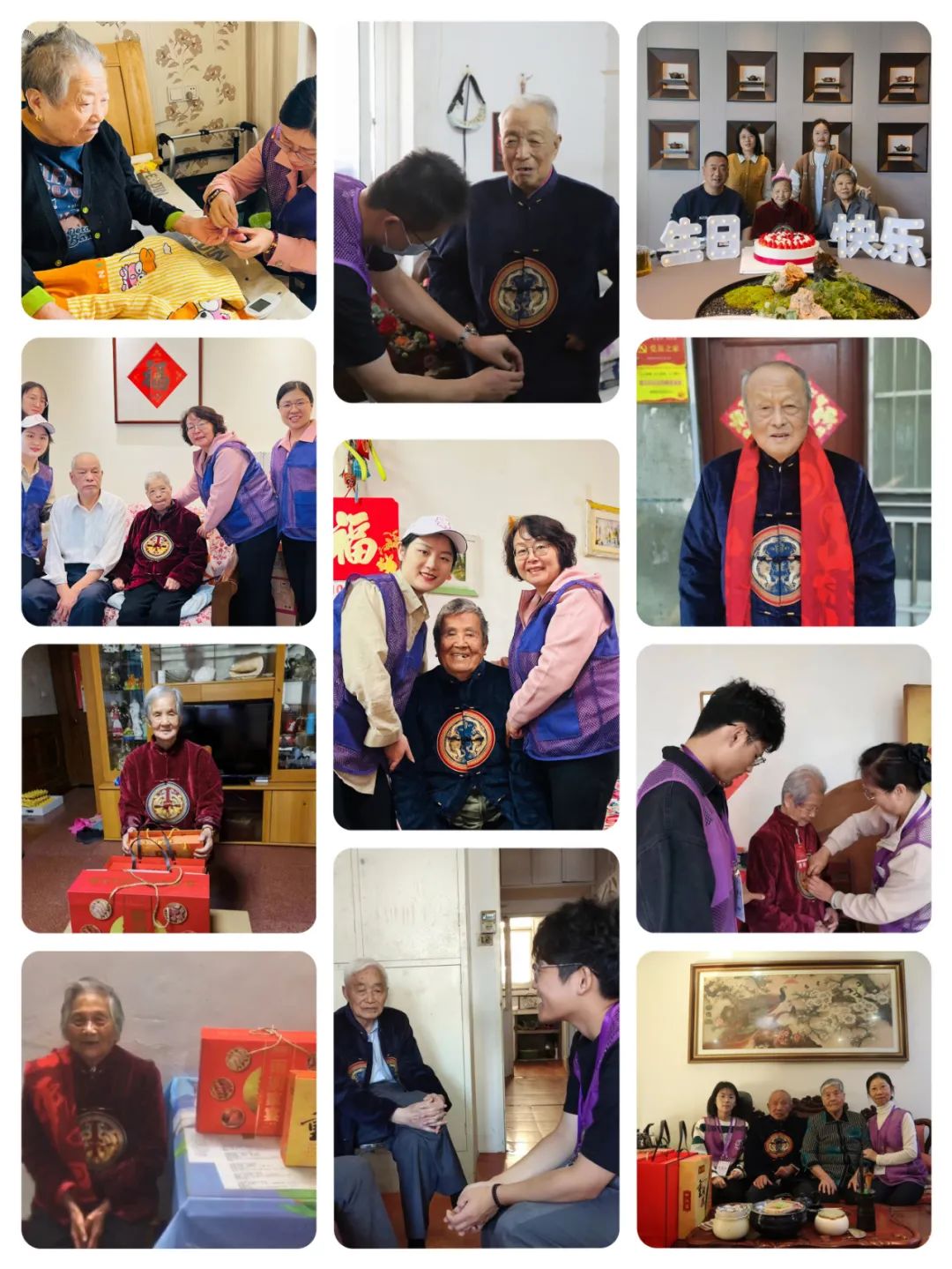
Chen Deshou: Lives in good health, able to talk clearly
In 1937, Chen’s father was taken away by the Japanese army. His aunt refused to yield in responding to an insult from the Japanese soldiers, who were then angered and stabbed her six times. Later, his grandmother and younger sister died from malaria, and to make a living, his mother had no choice but to remarry, leaving Chen, still a child, and his grandfather to depend on each other for survival.
Now, 86 years on, Chen is already an elderly man but is still going strong and able to talk clearly. He can walk several kilometers himself to get physical therapy. On October 18, which was Chen’s solar birthday, Memorial Hall staff members and volunteers presented Chen with a birthday cake. Receiving a bounty of birthday blessings, Chen was very glad. “This is the first time that I have had a solar birthday. I feel very happy to be cared for by so many.”
Wang Zihua: Likes listening to Peking Opera and reading newspapers
In 1937, Wang was only five years old. While escaping with his father after the Japanese army invaded, Wang was hit by a bullet in the arm. Not fully recovering from injury due to poor medical conditions, he was left with permanent sequelae. Whenever it rains, his wounded arm hurts.
Wang, who is now 91 years old, has some difficulty moving about and just walks about in his living room or on the balcony when he wants to. Wang’s family said he likes listening to Peking Opera and reading newspapers to learn about what’s happening in China right now.
Deng Hui, a student from Nanjing Tech University, visited Wang as a volunteer. “Seeing the wound in Wang’s arm, I have a lot of feelings. I increasingly feel that how lucky we are to live a beautiful life, which is hard to come by. I think volunteering with the Memorial Hall is not only a job. It also requires a sense of responsibility of not forgetting history. Spreading history and peace through volunteer services is very meaningful,” she said.
Shi Xiuying: Loves watching square dance and lives happily
On October 22, Memorial Hall staff members and three nurses from the survivor healthcare service team of Jiangsu Maternal and Child Health Care Hospital visited Shi.
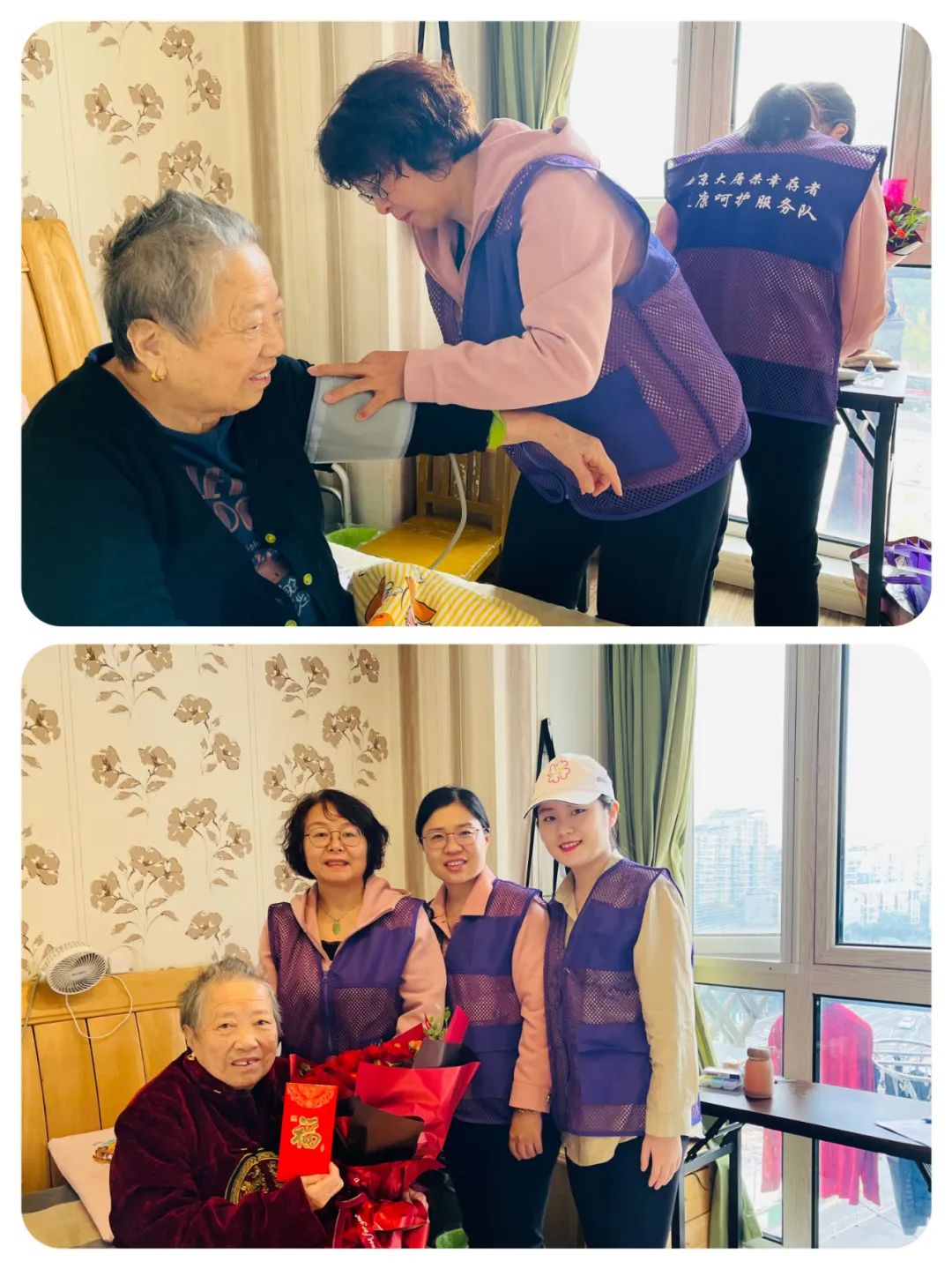
In 1937, Shi was only 11 years old. Her father Shi Changfu and her eldest brother Shi Kunbao were killed by the Japanese invaders. Shi was stabbed three times, but survived luckily after hiding in a refugee shelter. Today, Shi lives a happy life. Her family often takes Shi sitting in her wheelchair outside after dinner, for a walk near their home or to the public square where she watches others dancing. In daily life, Shi insists on doing things independently whenever she can. The volunteers offered Shi a Chinese Tang suit as a gift. She put on her new clothes with a happy smile.
Later, the nurses patiently taught her family how to inject medicine into Shi’s body. “It’s a great honor for us to offer help to Shi with our expertise. We wish all of the Nanjing Massacre survivors happiness and good health in their twilight years,” said Rong Mingmei, head nurse at the gynecology department of Jiangsu Maternal and Child Health Care Hospital.
Ai Yiying: Lives comfortably with many children and grandchildren
Ai is 95 years old. 86 years ago, all of the young males in Ai’s family died at the hands of the Japanese army, leaving behind four widows and their young children. They lived a hard life. That memory left scars on Ai, but for years, the strong, brave woman has persisted in spreading the truth behind that history and speaking out for peace.
Ai is all smiles when talking about her life now. “Life is good for me now. Every day I can have a three dishes and one soup lunch at the community canteen. In the afternoon, I often play cards with my old friends.”
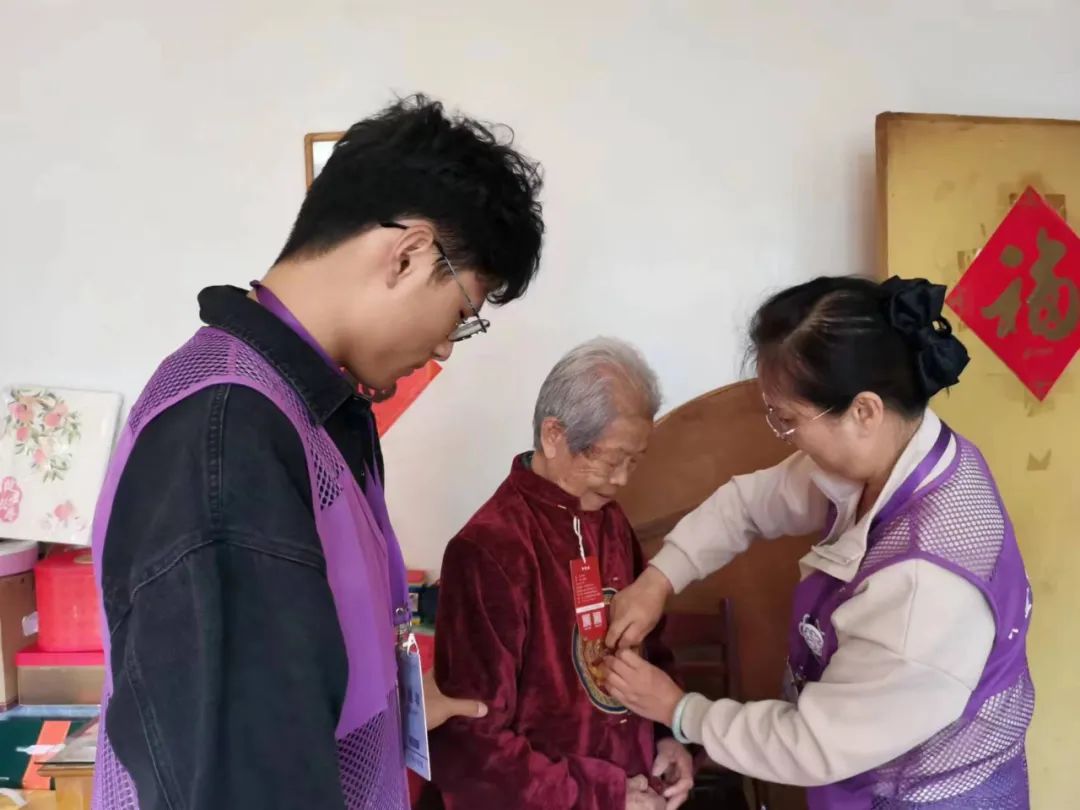
The volunteers help Ai Yiying put on her new clothes
Ruan Dingdong: Follows trends and enjoys life
Despite his old age, Ruan has fun keeping up with trends. In the past, Ruan often played chess with several good friends living in the same community. But now he likes playing chess at home on a tablet. “This old guy is obsessed with playing chess!” his wife sometimes jokes. Ruan also likes reading newspapers and often shares news about China’s development achievements with his family.
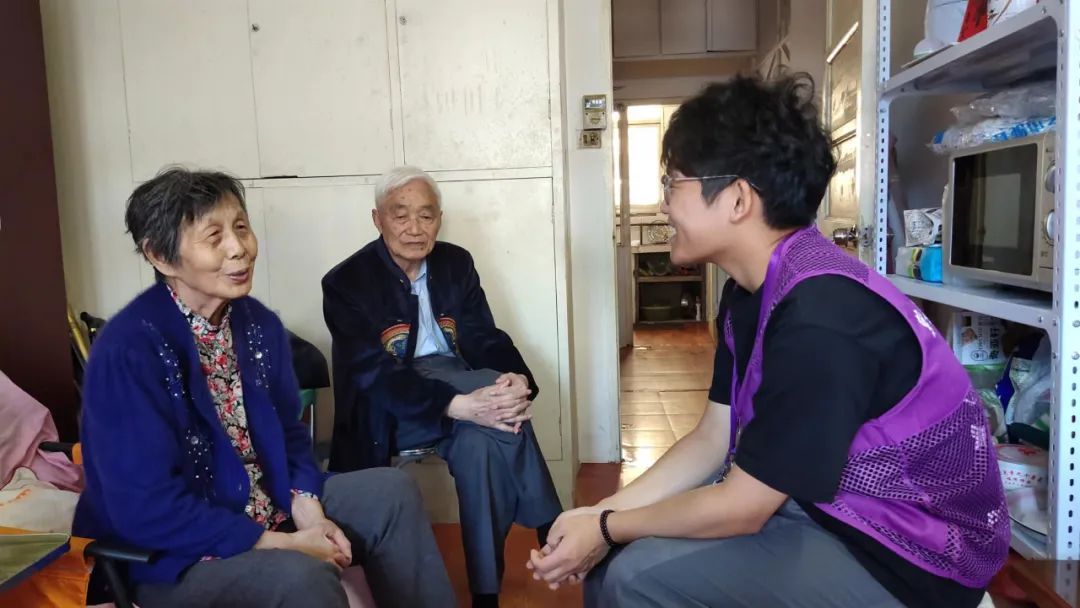
A volunteer chats with Ruan Dingdong and his wife
Gao Ruqin: Hopes the young generation could live a safe, peaceful life
Gao, 89 years old, looks in good spirits.
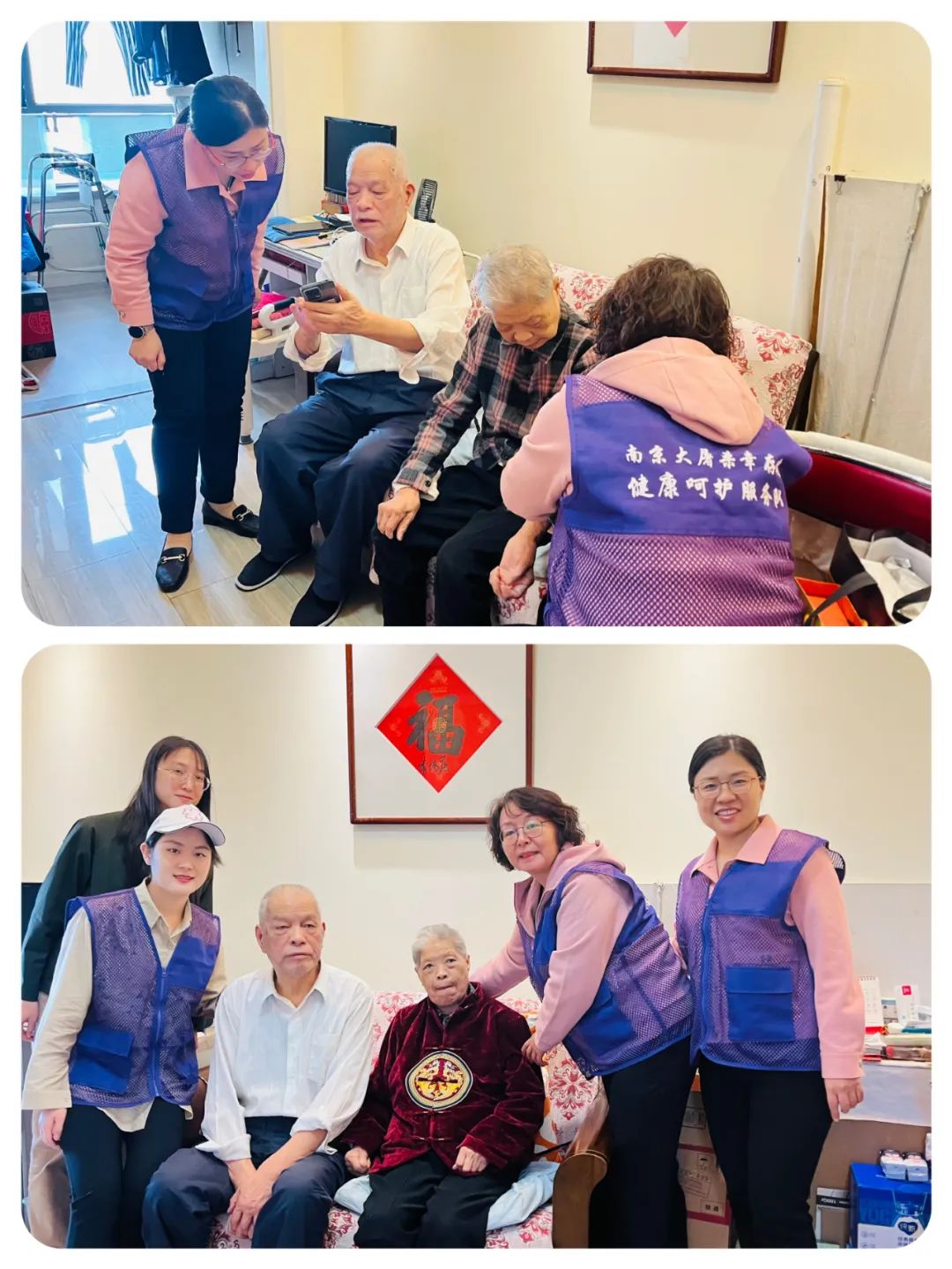
In 1937, Gao’s mother was shot by Japanese soldiers, with the bullet piercing her leg. Then her grandmother was shot in the chest. It hurt so much that she shouted and fell down, letting go of Gao’s hand. Later, Gao and her father fled to a refugee shelter, where they lived on porridge distributed at the shelter every day. “Now life is good for us. I hope today’s young people could live a safe and peaceful life and cherish their happiness,” Gao said.
Ma Tingbao: Has four generations living under one roof, treated well by family
In 1937, Ma’s father Ma Yuquan, his uncle-in-law Yang Shoulin, his mother’s eldest brother Wen Zhixue, and some uncles were captured by Japanese soldiers along with many young men. They were all slaughtered near the river at Xiaguan. Ma survived because of his young age.
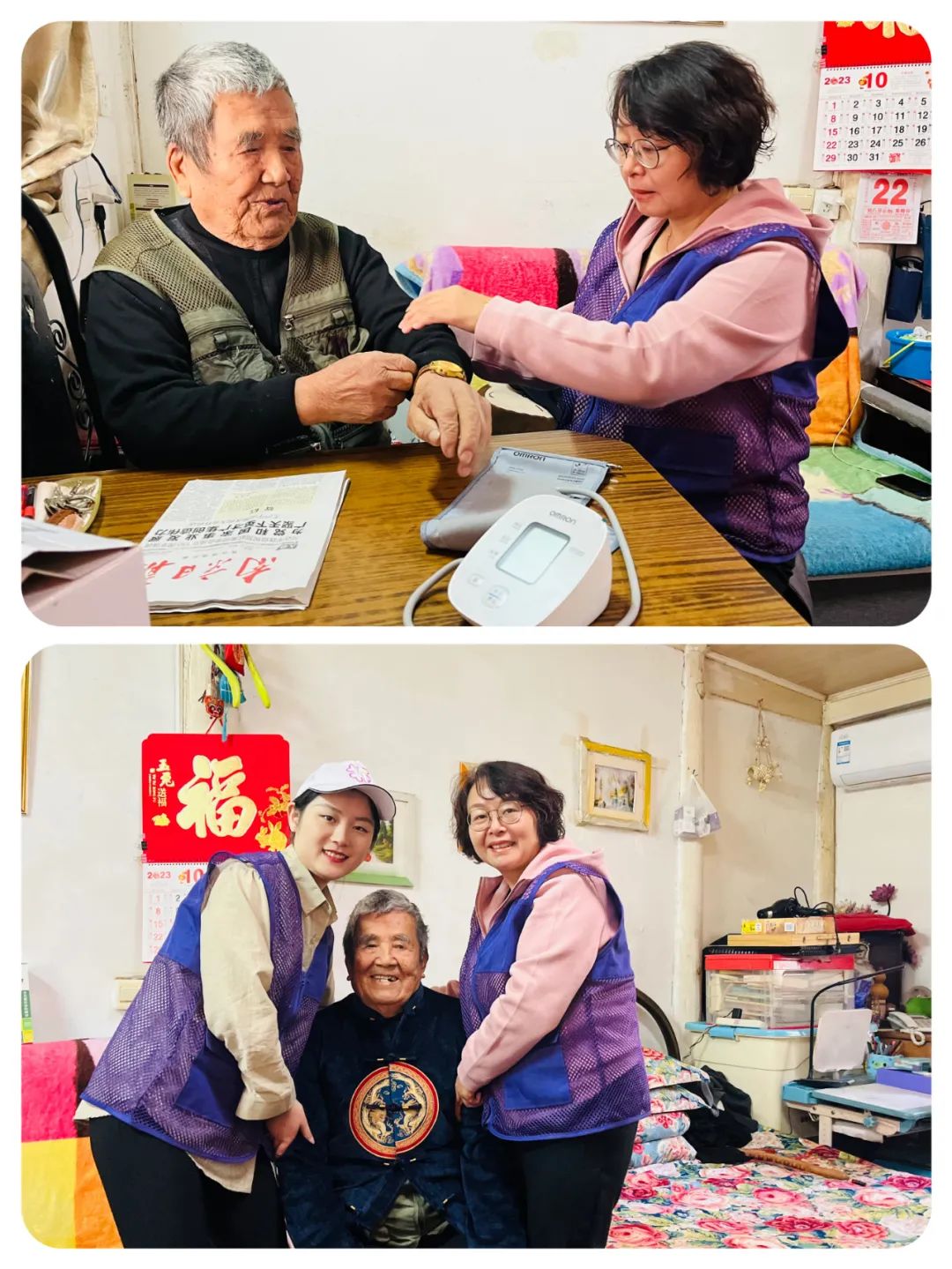
Now, 86 years have passed, and Ma’s children have built their families and even have their grandchildren now. They are all nice to Ma and often travel with him. He said he wishes his descendants would remember the Nanjing Massacre and pass down the history from generation to generation.
The Memorial Hall also sent gifts to other Nanjing Massacre survivors, including Huang Guilan, Li Changfu, Wei Guiru, and Xue Yujuan. Their families sent the Memorial Hall a few of their recent photos and talked withthe staff members about their daily life. While receiving her Chinese Tang suit, Huang was celebrating her birthday with her family. She was very glad and put on the suit for the celebration.
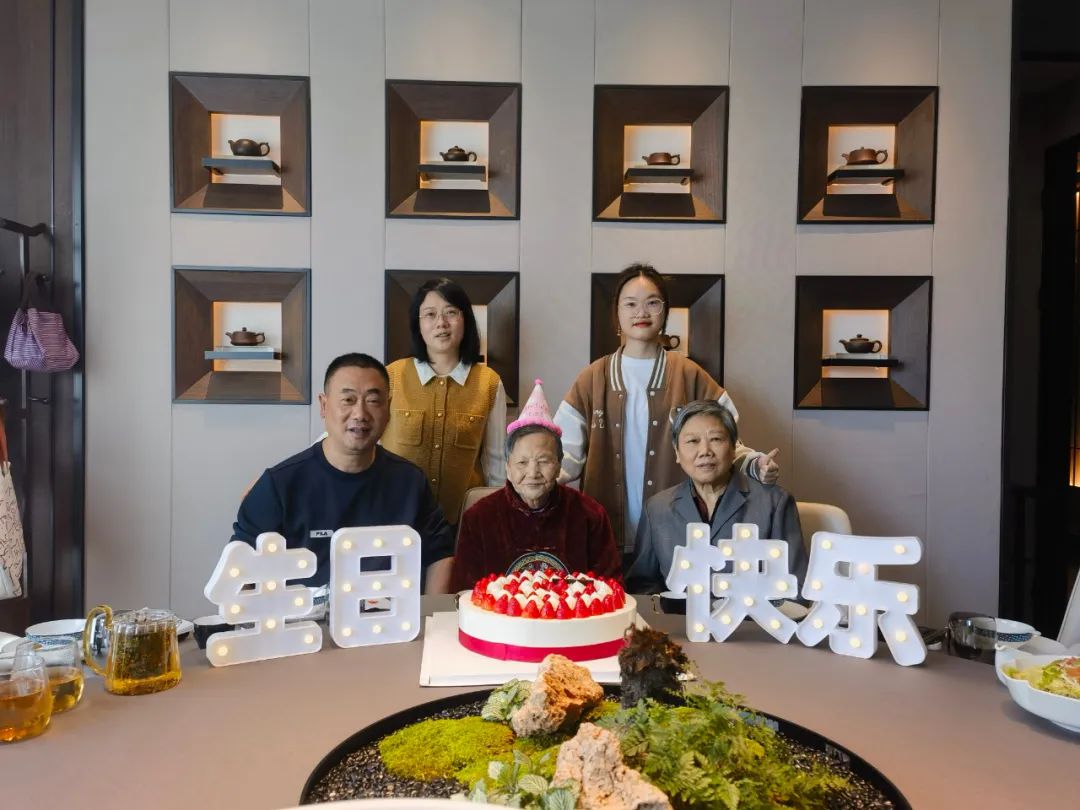
A photo of Huang Guilan with her family on her birthday party
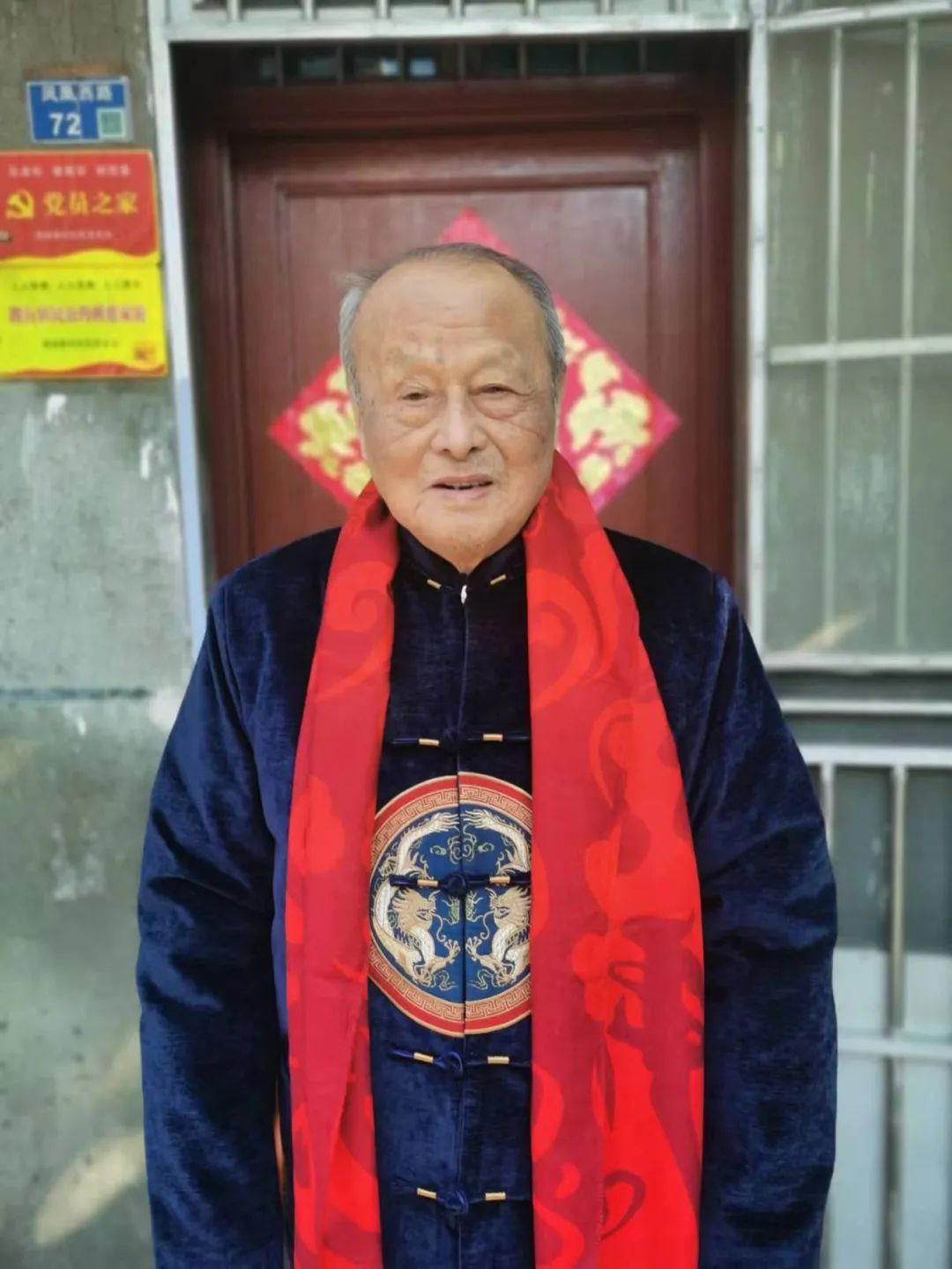
A photo of Li Changfu
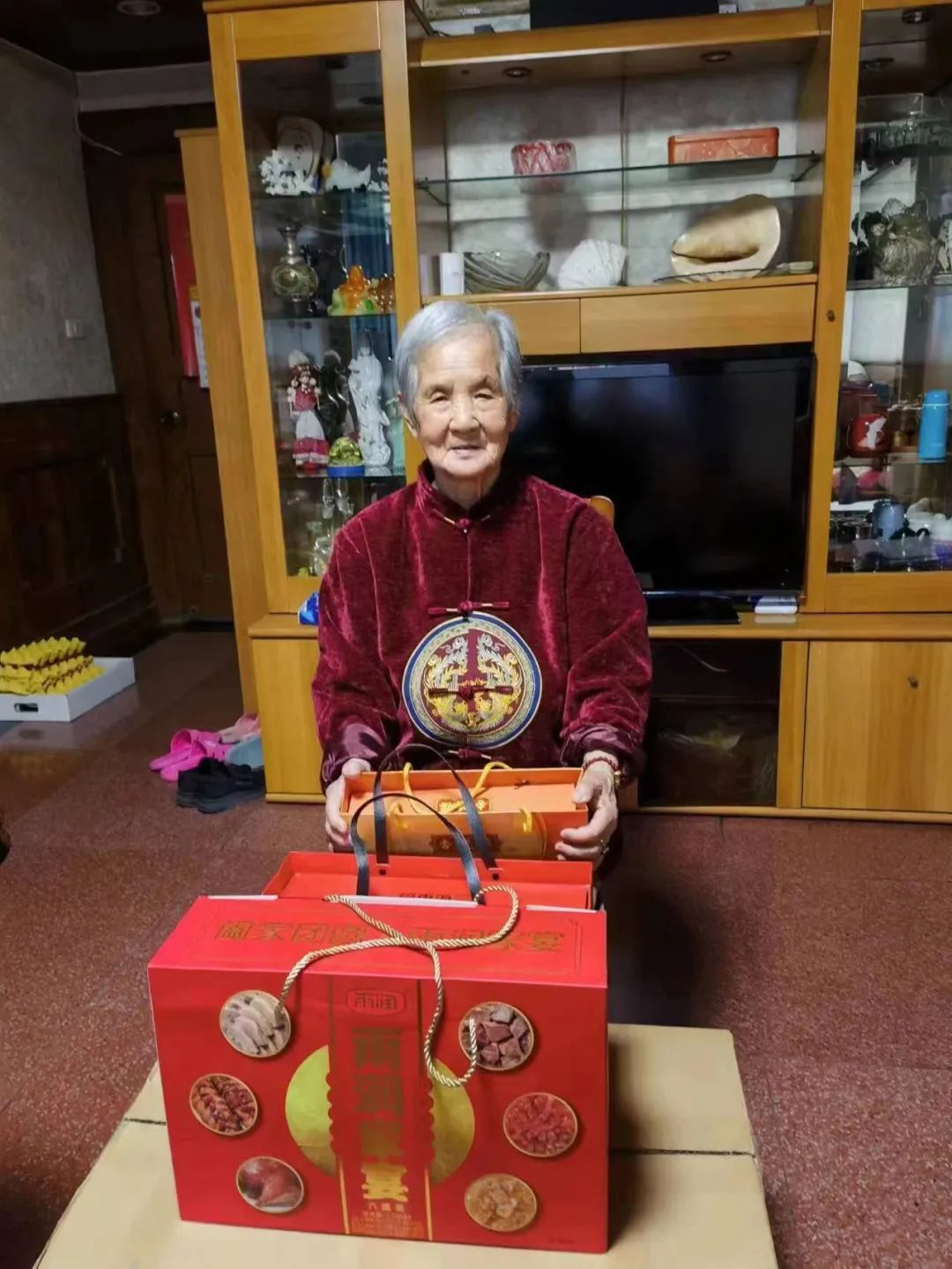
A photo of Wei Guiru
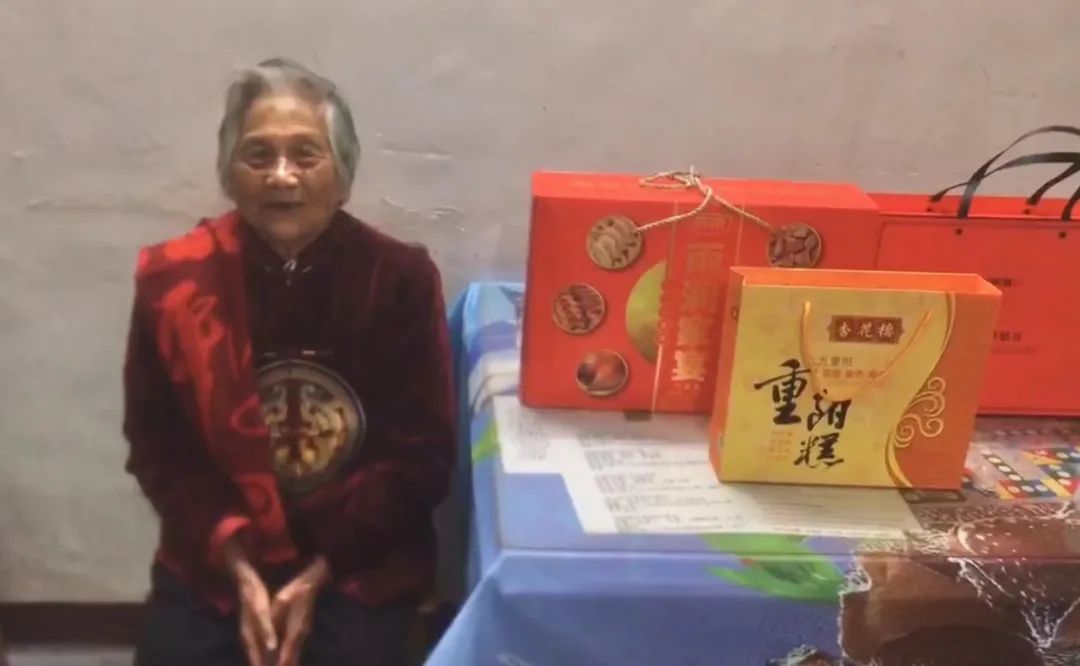
A photo of Xue Yujuan
During traditional festivals like the Spring Festival, Dragon Boat Festival, Mid-Autumn Festival, and Chongyang Festival, the Memorial Hall and the Nanjing Aid Association for the Victims of Atrocities by Japanese Invaders have a tradition of extending greetings to each elderly survivor, either through visits to their home or by sending gifts to them.
In 2018, the Memorial Hall and the Nanjing Aid Association for the Victims of Atrocities by Japanese Invaders joined hands with the Jiangsu Provincial People’s Hospital to establish a healthcare service team for Nanjing Massacre survivors. To help the survivors live healthy lives, the team offers them fast access to medical treatment, including emergency treatment, holds online and offline consultations with them, and provides healthcare services on a regular basis. Wish them good health and a happy life!

